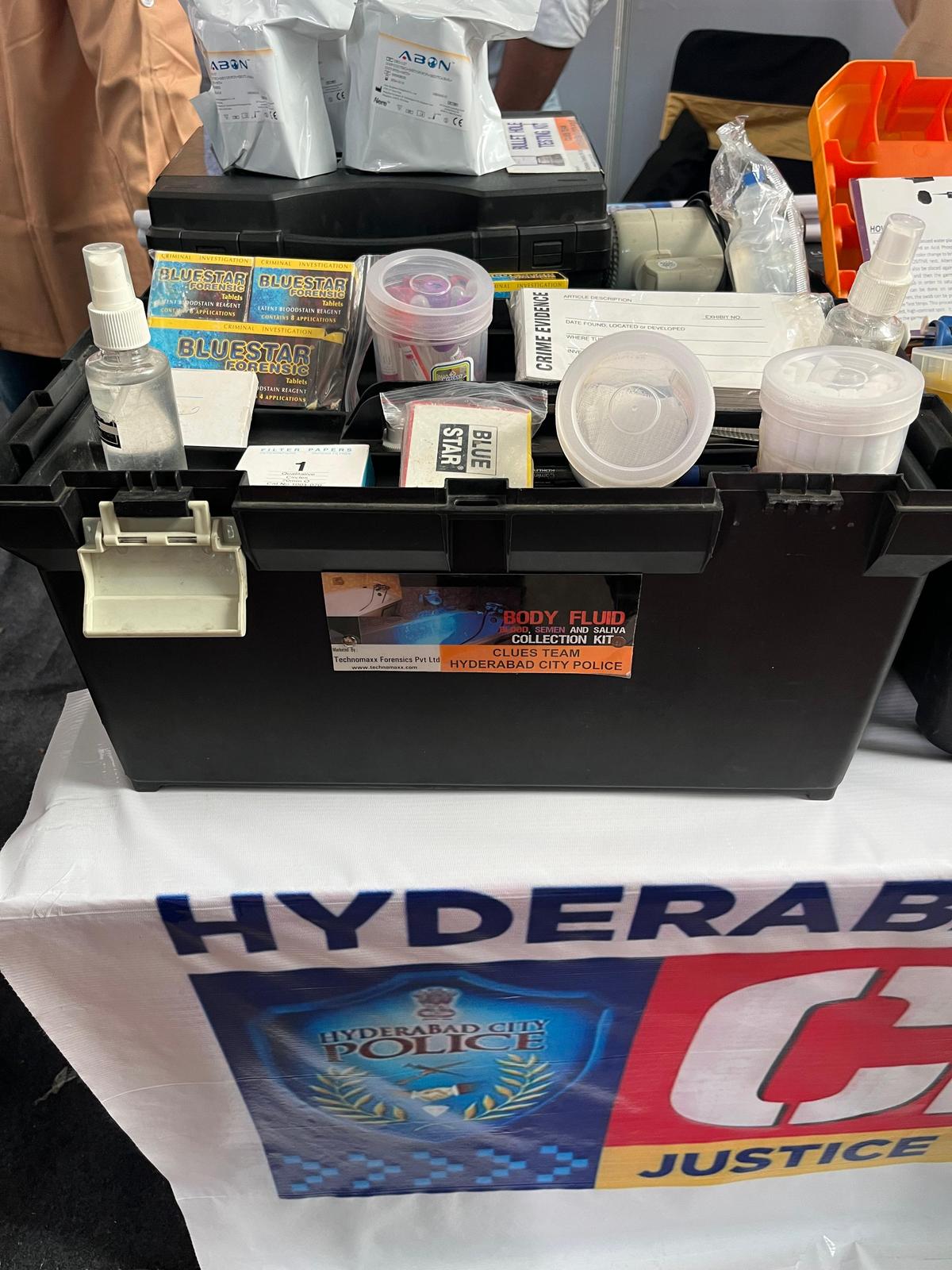
DNA sample collection kit used by Hyderabad city clues teams. For faster and better disposal of samples, the State has started training police officials in picking, packing and processing samples by following a strict chain of command.
| Photo Credit: Naveen Kumar
A 24-year-old migrant worker was sentenced to death in a mass murder case by a local court in Warangal district within 36 days of the trial. The fast judgment was the result of work done by the State’s Forensic Science Laboratory (FSL). This included processing and screening of DNA samples and tallying of audio or video evidence collected by the police.
The accused, Sanjay Kumar Yadav, was a native of Bihar who killed nine migrant workers, including a three-year-old boy, in Geesugonda mandal of Warangal on May 21, 2020, in a bid to cover up the murder of his paramour. He was convicted in October that same year.
“During forensic analysis, data, including deleted content, was retrieved from mobile phones of the suspect and the deceased. The case was cracked with the help of evidence like CCTV footage, internet artefacts and digital footprints, along with timeline details,” said Shikha Goel, director of TGFSL. “Moreover, camera ballistics of images and video files of the child were also retrieved,” she said.

Body fluid (blood, semen and saliva) collection kit used by Hyderabad city police clues team, which comes under Telangana Forensic Science Laboratory. TGFSL has spent over ₹18 crore to place an order of 29 mobile forensic labs which will be fully equipped and manned by a forensic expert to perform tests on the crime scene.
| Photo Credit:
Naveen Kumar
In another case, the accused was sentenced to life imprisonment after the DNA profile of his blood sample matched his sister’s foetus.
“Earlier, the DNA examination would take up to 15 to 20 days and reports would take anywhere between 3-6 months. We now have mitochondrial DNA sequencing that gives 94% conclusive results in case of sexual offences in just two days,” she said, adding that the department is set to place orders for more such equipment. Amid the piling of cases, TGFSL has a turnover rate of 83% last year. To put things in perspective, out of over 13,000 cases in 2023, a total of 11,112 case reports were cleared by the FSL.
Mobile forensic labs
The department has now set up six regional FSLs in Mahabubnagar, Kamareddy, Warangal, Karimnagar, Khammam and Mancherial, to reduce the burden on the headquarters in Hyderabad. It has spent over ₹18 crore to place an order of 29 mobile forensic labs. The customised vans, which will come in two variants, will be fully equipped and manned by a forensic expert to perform tests on the crime scene.
“We need close coordination between law and order police and forensic experts to maintain a protocol to handle evidence. With the latest criminal laws coming into the picture, every police station will have a forensics expert,” former FSL director Abhilasha Bisht said.
The State has started training police officials about picking, packing and processing samples by following a strict chain of command for faster and better disposal, Ms. Goel informed. As many as 700-800 officials across the State have already undergone training.
There are 175 experts in the main and regional FSLs, while the permanent scientific officers are only 46. “The proposal for recruiting about 40 more permanent experts has been approved by the government and the recruitment process will start this month. A proposal is under way for additional recruitment in view of the latest laws coming up in July,” she said.






